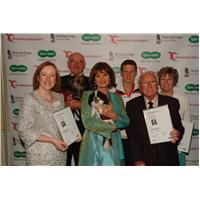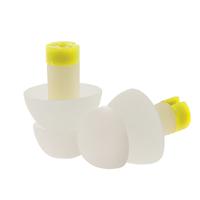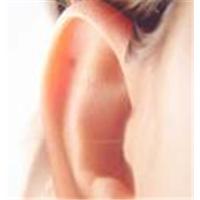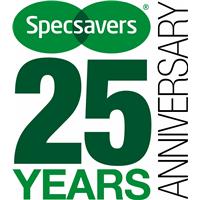London: Research published this week in the journal Nature gives millions of deaf and hard of hearing people new hope of new gene or drug treatments for deafness and has been welcomed as a significant breakthrough by the country’s only medical research charity for deaf people, Deafness Research UK.
Deafness Research UK Research Advisory Panel member, Professor Guy Richardson, praised the work as “a technical tour de force, and very convincing proof of the principle that gene therapy could, at least in certain cases, be used to cure deafness”.
There are nine million deaf and hard of hearing people in the UK and in most cases deafness results from loss of sensory cells in the inner ear known as “hair” cells. The cells can be damaged and lost through ageing, noise, genetic defects and certain drugs and, because the cells don’t regenerate, the result is progressive – and irreversible – hearing loss. Damage to these cells can also lead to tinnitus which affects around 5 million people in the UK.
The latest research, by a team at the Oregon Health & Science University, shows that a key gene known as Atoh1 (also known as Math1) can not only cause cells to develop into hair cells but that these cells function like normal hair cells.
Vivienne Michael, Chief Executive of Deafness Research UK said: “This is an important and exciting step along the road towards an effective medical treatment for deafness. Deafness Research UK has a long history of supporting research into the repair and regeneration of the sensory cells in the inner ear, including work on the Atoh1 gene and on the use of stem cells to restore hearing. We will continue to work towards getting a cure for unwanted deafness into the clinic.”
John Brigande, Assistant Professor of Otolaryngology at the Oregon Hearing Research Center in the OHSU School of Medicine said “Our work shows that it is possible to produce functional auditory hair cells in the mammalian cochlea.”
Brigande and colleagues were able to produce hair cells by transferring a key gene called Atoh1 (also known as Math-1) into ‘progenitor’ cells in the inner ear of developing mice. This type of cell becomes specialised to perform different functions during development, according to the instructions they receive from genes. The gene Atoh1 is known to turn progenitor cells into hair cells, but it was not previously known whether the hair cells would work normally if Atoh1 was introduced artificially.
To find out, the team inserted Atoh1 into progenitor cells along with a fluorescent protein molecule that is often used in research as a marker, to make cells easily visible. They were then able to see that the gene transfer technique resulted in mice being born with more hair cells in the cochlea than are normally found.
Crucially, Dr. Anthony Ricci, Associate Professor of Otolaryngology at the Stanford University School of Medicine, demonstrated that the gene-treated hair cells function like ordinary hair cells.
Stem cells are a type of progenitor and so can be instructed by genes to become a specific cell-type. One obstacle in the way of stem cell research has been ethical objection to the use of embryonic stem cells. However, researchers at Sheffield University supported by Deafness Research UK are currently working on extracting stem cells from the bone marrow and blood that are found in the umbilical cord, with the aim of turning them into hair cells that could be inserted into the cochlea. The umbilical cells are in rich supply and avoid the ethical issues surrounding the embryonic cells.
About Deafness Research UK
” Deafness Research UK is the country’s only charity dedicated to finding new cures, treatments and technologies for deaf, hard of hearing and other hearing impaired people.
” The charity supports high quality medical research into the prevention, diagnosis and treatment of all forms of hearing impairment including tinnitus.
” The Deafness Research UK Information Service provides free information and advice based on the latest scientific evidence and informed by leading experts. The Information Service can be contacted on Freephone 0808 808 2222
” For more information on research into deafness, tinnitus and other hearing conditions, log on to the website at www.deafnessresearch.org.ukwhere you can access a wide range of information. Alternatively you can e-mail Deafness Research UK at info@deafnessresearch.org.uk
” One in seven people in the UK – almost nine million people – suffer hearing loss.
” Deafness Research UK was founded in 1985 by Lord (Jack) and Lady Ashley of Stoke.
” In January 2008, Action for Tinnitus Research (ATR) was linked with
Deafness Research UK under a uniting direction order under Section 96 (6) of the Charities Act 1993.
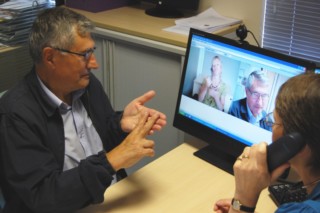 If we needed any further proof of how important the internet has become, this is it…
If we needed any further proof of how important the internet has become, this is it…
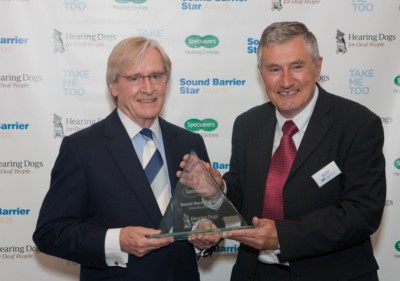
_Small.jpg)
_Small.jpg)
